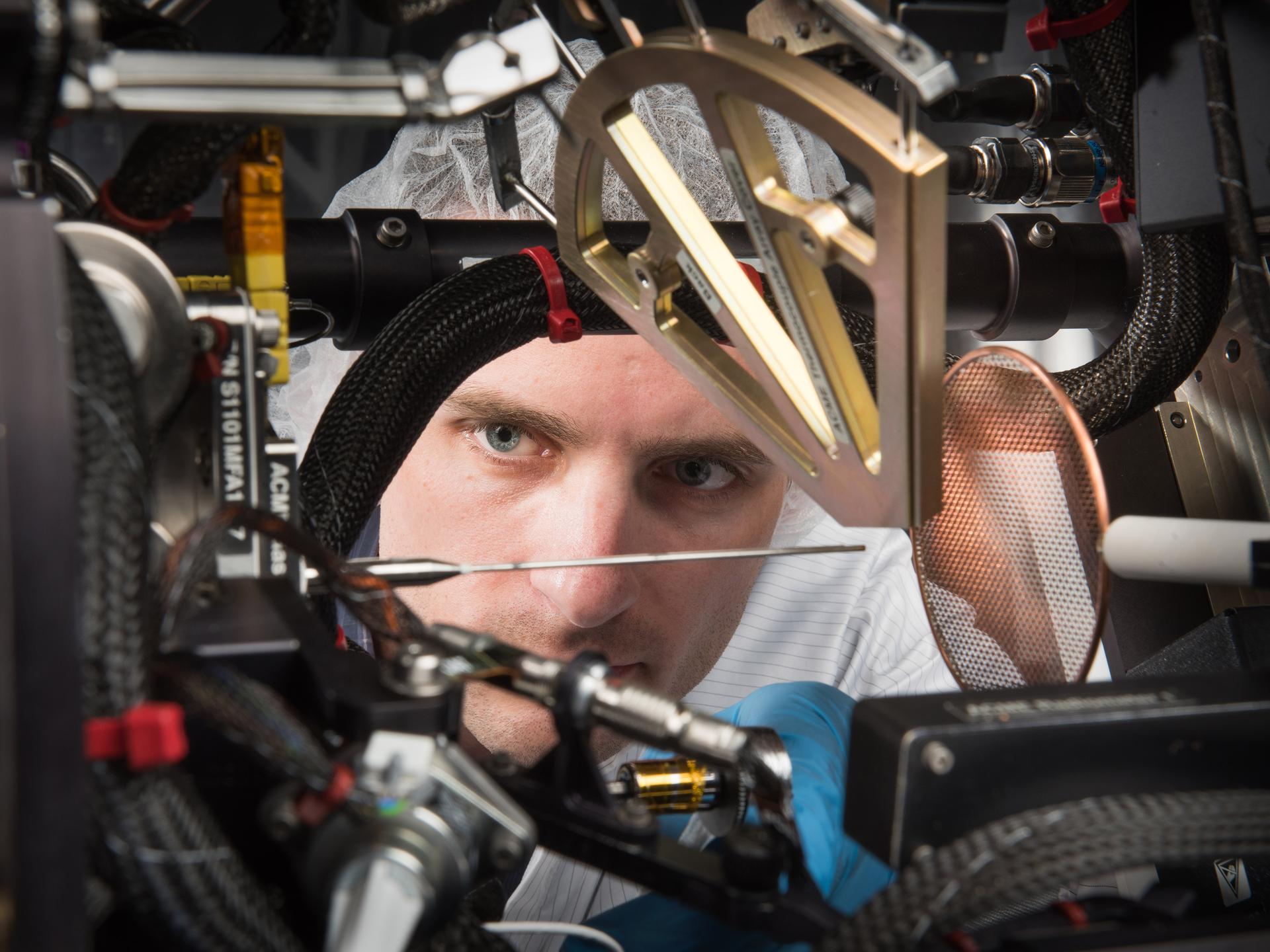The PSI system is a tool NASA developed to serve as a data repository for the experiments performed on the space station and other platforms. The goal of the PSI system is to enable global access to cutting-edge research data to fuel innovation and discovery. It enables more scientists to conduct research using data from the rich heritage of reduced-gravity fight investigations conducted through the NASA Physical Sciences Research Program.
Since 2001, microgravity experiments have been conducted on the space station in the physical sciences and have yielded rich results. Some results have been unexpected, and most would not be observed in Earth-based labs. These results provided valuable insights into fundamental physical behavior that can apply to both terrestrial and space environments.
For example, the Microgravity Science Glovebox, or MSG, celebrated its 20th anniversary aboard the space station in 2022. Managed by NASA’s Marshall Space Flight Center in Huntsville, Alabama, the unique lab is designed to closely simulate working conditions on the ground. NASA science research on the space station also reached an extraordinary milestone in 2022: The vital, versatile EXPRESS Racks achieved 1 million hours of service on the space station.
Since 2001, microgravity experiments have been conducted on the International Space Station (ISS) in the physical sciences and have yielded rich results, some unexpected and most would not be observed in Earth-based labs. These results provided valuable insights into fundamental physical behavior that can apply to both terrestrial and space environments. Collecting this data in a single location not only provides scientists with scientific data from hundreds of NASA experiments, it also helps identify fields where more study is needed. Open Science "brings together the community of researchers to define an envelope of experiments that will be conducted and analyzed, leveraging modern high content analytics in the life and physical sciences", said Marshall Porterfield, NASA’s Director of Space Life and Physical Sciences at NASA Headquarters in Washington. "The resulting data from that envelope of experiments will then be used to create experimental informatics libraries that will support many more investigators and funded ISS-derived research. What that does is, it converts what would be normally a single [Principal Investigator] PI research opportunity into multiple PI research opportunities now and into the future".
Each investigation will include actual "raw" or minimally processed science data as taken during experiment flight operations on the ISS. This data set is comprised of machine-readable textual or numerical form documents, digital images and videos. The Physical Science Informatics (PSI) repository also contains analyzed or reduced data by the PI’s science team along with supporting data including science requirements, experiment design and engineering data (including applicable drawings), any analytical or numerical models, publications, reports, and patents, and description of any commercial products developed as a result of the research.
Though population of all data in the repository is not yet complete, new physical science data is being added daily as we work to complete data sets for previously flown experiments in the areas of Biophysics, Combustion Science, Complex Fluids, Fluid Physics, Fundamental Physics, and Materials Science. If the data you are looking for has not been loaded yet and you wish to be notified when it is, simply click the "Notify Me" box on the investigation record to receive system generated emails when the investigation record is updated.
History of BPS
- Microgravity Research Program 1984-1998
- Office of Biological and Physical Research Program 1998-2004
- Advanced Life Support - Life Support and Habitation Program 2004-2006
- ISS Research Project 2006-2012
- Space Life and Physical Sciences Research and Application Division 2012 - 2020 (SLPSRA)
- PSI was initiated in 2014 as an open science database.
- Science Mission Directorate (SMD) Biological and Physical Sciences (BPS) Division 2020 - present
A Year of Open Science
On Jan. 11, the White House – joined by 10 federal agencies, a coalition of more than 85 universities, and other organizations – declared 2023 to be a Year of Open Science.
This year will celebrate the benefits and successes of open science and inspire more scientists to adopt open science. Ultimately, the success of the Year of Open Science will be driven by collaborations with individuals, teams, and organizations who are ready to transform the culture of science into one that celebrates openness, and inclusion.
A Year of Open Science has set out four goals to work toward:
- Establish strategic approaches for advancing open science.
- Promote equitable participation in open science through transparency, integrity, and equity of reviews.
- Account for open science activities in evaluations and incentives.
- Engage underrepresented communities in the advancement of open science and research.




